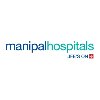Staff Nurse
700+ Staff Nurse Interview Questions and Answers

Asked in Apollo Hospitals

Q. What are the pre operative care Before dowing any procedure what ever care we will given that is pre operative care
Pre-operative care includes preparing the patient physically and mentally for the upcoming procedure.
Assessing the patient's medical history and current health status
Ensuring the patient has fasted for the appropriate amount of time
Administering pre-operative medications as ordered by the physician
Explaining the procedure and answering any questions the patient may have
Ensuring the patient has signed the necessary consent forms
Preparing the surgical site by cleaning and steri...read more

Asked in Paras Hospital

Q. How many steps are there in the hand washing technique?
There are 6 steps in the hand washing technique.
Wet your hands with clean, running water
Apply soap and lather well
Rub hands together for at least 20 seconds
Rinse well under running water
Dry hands with a clean towel or air dry
Use a towel to turn off the faucet
Staff Nurse Interview Questions and Answers for Freshers

Asked in Apollo Hospitals

Q. How do you manage medication in a hospital setting?
Medicine management in hospitals involves various steps to ensure safe and effective administration of medications.
The medication order should be verified by a licensed healthcare provider.
The medication should be properly labeled and stored in a secure location.
The medication should be administered by a licensed healthcare provider following the five rights of medication administration: right patient, right medication, right dose, right route, and right time.
Documentation of...read more

Asked in Max Healthcare

Q. What is the normal range of sodium?
Normal range of sodium in blood is 135-145 mEq/L.
Sodium is an electrolyte that helps regulate fluid balance in the body.
Abnormal levels can indicate dehydration, kidney problems, or hormonal imbalances.
Low sodium levels (hyponatremia) can cause symptoms like headache, nausea, and confusion.
High sodium levels (hypernatremia) can cause symptoms like thirst, dry mouth, and muscle weakness.

Asked in Fortis Healthcare

Q. How do you care for ARDS patients, and what steps would you take if a patient suddenly becomes unresponsive?
In case of sudden unresponsiveness in ARDS patient, immediate action is required.
Check for airway patency and breathing
Administer oxygen if necessary
Assess for any signs of cardiac arrest and initiate CPR if needed
Notify the physician and call for emergency assistance
Monitor vital signs and provide supportive care until help arrives
Asked in MaxAtHome

Q. If you are unfamiliar with a procedure or uncomfortable communicating with others, how would you learn the procedure without resorting to flattery?
To learn a procedure I dislike, I would focus on structured learning, seek guidance, and practice diligently to build confidence.
Identify the specific procedure and break it down into manageable steps.
Utilize resources like textbooks, online tutorials, or videos to understand the procedure better.
Seek mentorship from experienced colleagues who can provide guidance and support.
Practice the procedure in a controlled environment, such as simulations or under supervision.
Reflect ...read more
Staff Nurse Jobs




Asked in Apollo Hospitals

Q. Why are BLS and ACLS certifications important in a hospital setting?
BLS and ACLS are important in hospitals for emergency situations and to ensure patient safety.
BLS (Basic Life Support) is important for providing immediate care to patients experiencing cardiac arrest, respiratory distress, or other life-threatening emergencies.
ACLS (Advanced Cardiac Life Support) is important for managing more complex cardiac emergencies, such as arrhythmias, heart attacks, and strokes.
Having staff trained in BLS and ACLS can improve patient outcomes and red...read more
Asked in MaxAtHome

Q. In the operating room, if a patient experiences significant blood loss, can IV blood be administered via syringe?
IV blood transfusions should not be administered via syringe due to safety and efficacy concerns.
Blood transfusions require specific protocols to ensure safety and compatibility.
Using a syringe can lead to hemolysis of red blood cells due to high pressure.
Blood should be transfused using a blood administration set with a filter to remove clots.
Example: In emergencies, blood can be transfused via a large-bore IV cannula, not a syringe.
Share interview questions and help millions of jobseekers 🌟


Asked in Medanta the Medicity

Q. What is the normal range of electrolytes for patients?
The normal range of electrolytes varies depending on the specific electrolyte being measured.
Electrolytes include sodium, potassium, calcium, magnesium, chloride, and bicarbonate.
The normal range for sodium is 135-145 mEq/L.
The normal range for potassium is 3.5-5.0 mEq/L.
The normal range for calcium is 8.5-10.5 mg/dL.
The normal range for magnesium is 1.5-2.5 mEq/L.
The normal range for chloride is 98-106 mEq/L.
The normal range for bicarbonate is 22-28 mEq/L.
These ranges may va...read more

Asked in Paras Hospital

Q. How would you handle an emergency patient as a nurse?
As a nurse, I can handle an emergency patient by remaining calm, assessing the situation quickly, prioritizing care, and communicating effectively with the healthcare team.
Remain calm and composed to provide a sense of stability for the patient and other staff members
Quickly assess the patient's condition and prioritize care based on the severity of their injuries or illness
Initiate necessary interventions such as CPR, administering medications, or stabilizing vital signs
Comm...read more

Asked in Narayana Superspeciality Hospital

Q. What are the different types of instrument during general surgery and orthopedic surgery
Different types of instruments used in general and orthopedic surgery
General surgery instruments include scalpels, forceps, retractors, scissors, and clamps
Orthopedic surgery instruments include bone saws, drills, hammers, chisels, and retractors
Both types of surgery may also use suction devices, electrocautery tools, and laparoscopic instruments
Specialized instruments may be used for specific procedures, such as endoscopes for minimally invasive surgeries

Asked in Narayana Health

Q. How should a nurse control infection?
Nurses control infection by following strict protocols and implementing preventive measures.
Adhering to hand hygiene practices
Using personal protective equipment (PPE)
Implementing proper waste disposal procedures
Maintaining a clean and sanitized environment
Educating patients and their families about infection control measures
Monitoring and reporting any signs of infection
Collaborating with other healthcare professionals to develop infection control strategies

Asked in Manipal Hospitals

Q. If a patient suddenly experiences cardiac arrest, what is the first action the nurse should take?
The nurse should immediately initiate cardiopulmonary resuscitation (CPR) to attempt to restore the patient's heartbeat and breathing.
Initiate cardiopulmonary resuscitation (CPR) by performing chest compressions and rescue breaths
Call for help and activate the emergency response system
Retrieve and use an automated external defibrillator (AED) if available
Administer appropriate medications as per the advanced cardiac life support (ACLS) guidelines
Continue CPR until the arrival...read more

Asked in Manipal Hospitals

Q. If the patient was unconscious, what would you assess first?
The first thing to assess in an unconscious patient is their airway.
Check for any obstructions in the airway
Open the airway by tilting the head back and lifting the chin
Listen for any abnormal breathing sounds
Look for chest rise and fall
Assess for any signs of respiratory distress

Asked in Max Healthcare

Q. What is hypotension and what is the range for hypotension?
Hypotension is low blood pressure. Normal range is 90/60 mmHg to 120/80 mmHg.
Hypotension is when the blood pressure is lower than normal
Symptoms include dizziness, fainting, and fatigue
Causes include dehydration, medication side effects, and heart problems
Normal range is 90/60 mmHg to 120/80 mmHg

Asked in Apollo Hospitals

Q. Why is NABH accreditation important for hospitals?
NABH accreditation ensures quality healthcare services and patient safety in hospitals.
NABH (National Accreditation Board for Hospitals & Healthcare Providers) is a quality assurance program for hospitals.
It ensures that hospitals follow standard protocols and guidelines for patient care and safety.
NABH accreditation also helps hospitals to improve their processes and systems, leading to better patient outcomes.
It is important for hospitals to have NABH accreditation as it bu...read more

Asked in KIMS Hospital

Q. What is vitals What is the intibation Purpose of ambu bag Function of defib Spo2 meaning Normal level of hb,sodium ,potassium How to potassium carection given
Vitals are essential signs of a person's body functions. Intubation is the insertion of a tube into the airway. Ambu bag is used for manual ventilation. Defib is a device used to deliver an electric shock to the heart. Spo2 measures oxygen saturation. Normal levels of hb, sodium, and potassium vary. Potassium correction is given based on the patient's potassium level.
Vitals are measurements of a person's body functions, including heart rate, blood pressure, temperature, and r...read more

Asked in Max Healthcare

Q. What is a heart block, and what are the different types of heart blocks?
Heart block is a condition where the electrical signals that control the heartbeat are delayed or blocked.
There are three types of heart block: first-degree, second-degree, and third-degree
First-degree heart block is the mildest form and usually does not require treatment
Second-degree heart block can cause symptoms such as dizziness, fainting, and chest pain
Third-degree heart block is the most severe form and can be life-threatening, requiring immediate medical attention
Asked in MaxAtHome

Q. If a patient's blood pressure is very high, which injection is given and by what method (direct injection or infusion)?
In cases of increased blood pressure, medications can be administered via injection or infusion to manage the condition effectively.
Antihypertensive medications like Labetalol can be given via IV injection.
Nitroglycerin infusion is used for acute hypertension management.
Enalaprilat can be administered as an injection for rapid blood pressure control.
Continuous infusion of Nicardipine is effective for severe hypertension.

Asked in Apollo Hospitals

Q. In which patients is CPR not administered?
CPR should not be given in certain cases
CPR should not be given in cases of irreversible death
CPR should not be given in cases where a do-not-resuscitate (DNR) order is in place
CPR should not be given in cases where the patient has a terminal illness and has expressed a wish to die peacefully
CPR should not be given in cases where the patient has a poor quality of life and the benefits of resuscitation are unlikely to outweigh the harms

Asked in Narayana Superspeciality Hospital

Q. What are the emergency codes in a NABH hospital, and how are they announced?
Emergency codes are used in NABH hospitals to alert staff of various emergencies. They are announced through a code system.
Emergency codes are used to alert staff of various emergencies such as fire, bomb threat, cardiac arrest, etc.
Each emergency has a specific code assigned to it, such as Code Red for fire and Code Blue for cardiac arrest.
The codes are announced through a code system, usually over the hospital intercom or pager system.
Staff members are trained to respond qu...read more
Asked in MaxAtHome

Q. During catheterization, do you use normal saline or distilled water, and at what percentage?
In catheterization, normal saline (NS) is commonly used for irrigation, typically at a concentration of 0.9%.
Normal saline (NS) is isotonic and helps maintain fluid balance during catheterization.
NS is often used to flush catheters to prevent blockage.
Digital water is less commonly used; NS is preferred for its compatibility with body fluids.
In some cases, sterile water may be used, but NS is the standard.

Asked in Manipal Hospitals

Q. If a patient's blood pressure suddenly drops and the patient becomes unconscious, what actions should the nurse take?
If a patient's blood pressure suddenly drops and they become unconscious, a nurse should take immediate action to stabilize the patient.
Assess the patient's vital signs and check for a pulse
Administer oxygen if necessary
Initiate cardiopulmonary resuscitation (CPR) if the patient has no pulse
Administer intravenous fluids to increase blood volume
Notify the healthcare team and request assistance
Monitor the patient closely and document all interventions and responses

Asked in Sri Ramachandra University

Q. A baby came to the hospital complaining of a fever. What are the first steps you would take?
Assess the baby's temperature and other symptoms, provide appropriate treatment and monitor the baby's condition.
Assess the baby's temperature and other vital signs
Ask the parents about the baby's medical history and any recent illnesses
Provide appropriate treatment such as medication to reduce fever
Monitor the baby's condition and provide supportive care as needed
Educate the parents on how to care for the baby at home and when to seek medical attention

Asked in KIMS Hospital

Q. In case a patient is experiencing hypoglycemia, what actions would you take?
When a patient is hypoglycemic, a staff nurse should take immediate action to raise their blood sugar levels.
Administering glucose orally or intravenously
Monitoring the patient's blood sugar levels regularly
Assessing the patient's symptoms and providing appropriate care
Educating the patient and their family about hypoglycemia prevention and management
Collaborating with the healthcare team to adjust the patient's medication or diet if necessary

Asked in Max Healthcare

Q. What is the definition of proteinuria?
Proteinuria is the presence of excess protein in the urine, indicating potential kidney damage or dysfunction.
Proteinuria is a condition where abnormal amounts of protein are found in the urine.
It is often a sign of kidney disease or damage.
Proteinuria can be detected through a urine test called a urinalysis.
Common causes of proteinuria include diabetes, high blood pressure, and kidney infections.
Treatment for proteinuria depends on the underlying cause and may involve medica...read more

Asked in Fortis Healthcare

Q. Define the CPR CPR ratio
CPR stands for cardiopulmonary resuscitation. It is a life-saving technique used in emergency situations to restore breathing and circulation.
CPR involves chest compressions and rescue breaths
The ratio of compressions to breaths is typically 30:2
The goal of CPR is to keep oxygenated blood flowing to the brain and other vital organs
CPR should be performed until emergency medical services arrive or the person shows signs of life
CPR can be performed on adults, children, and infa...read more

Asked in Batra Hospital

Q. What equipment is needed for a pediatric cannula tray set?
A pediatric cannula tray set typically includes various equipment for pediatric cannulation procedures.
Pediatric cannula tray sets usually include a range of cannulas in different sizes.
They may also contain syringes and needles for medication administration.
Other equipment commonly found in pediatric cannula tray sets include IV catheters, extension sets, and IV start kits.
Additional items may include alcohol swabs, adhesive dressings, and gloves for infection control.
Some t...read more

Asked in Apollo Hospitals

Q. What are the daily fluid requirements for a newborn child per day of life?
The daily fluid requirements of a newborn child vary depending on their weight and age.
A newborn weighing 2.5 kg requires approximately 60-70 ml/kg/day of fluids.
For the first 3 days of life, a newborn requires around 60 ml/kg/day of fluids.
From day 4 to day 7, the fluid requirement increases to around 80 ml/kg/day.
After the first week of life, the fluid requirement decreases to around 150 ml/kg/day.
Breast milk or formula milk is the primary source of fluids for newborns.

Asked in Medanta the Medicity

Q. What are the different types of insulin, and what are the appropriate injection sites?
Different types of insulin are used for diabetes management and can be administered at various sites.
Rapid-acting insulin: injected before meals, given in abdomen, upper arm, thigh
Short-acting insulin: injected before meals, given in abdomen, upper arm, thigh
Intermediate-acting insulin: injected twice daily, given in abdomen, upper arm, thigh
Long-acting insulin: injected once or twice daily, given in abdomen, upper arm, thigh
Ultra-long-acting insulin: injected once daily, giv...read more
Interview Questions of Similar Designations
Interview Experiences of Popular Companies






Calculate your in-hand salary
Confused about how your in-hand salary is calculated? Enter your annual salary (CTC) and get your in-hand salary


Reviews
Interviews
Salaries
Users










